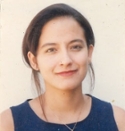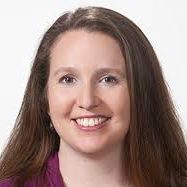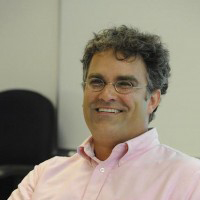The Faculty Associates program brings in faculty members from any discipline to train and work in the University Writing Center for a 1-2 year residency. During the residency, the Associate participates in training and consults with students and faculty in the writing center. The Associate's time in the center may also include participation in projects or presentations that connect the Associate's academic interests and the needs of the writing center. Faculty Associates are encouraged to develop ideas for scholarly writing, and several Associates have had scholarly articles related to their writing center experience published during or after their residency. A customized contract between the Learning Centers and the Associate's home department outlines the duties, expectations, and details of the course release for each Associate.
Hear It From Us!

Vanessa Rouillon
Faculty Associate
2015 - 2017
My two-year term as a UWC Faculty Associate was an experience I had longed to return to since I joined JMU in 2013. As a doctoral student at the University of Illinois (2008-2013), I worked in the Illinois writing center, where I gained confidence in being a sympathetic audience to students’ assignments. More importantly, I realized the importance of sharing one’s work and giving writers a chance to better articulate their ideas and advocate for their topics.
I brought those beliefs and enthusiasm to my work at the UWC and was rewarded with multiple sessions with writers from all disciplines, which turned into responsible discussions of ideas and use of sources. Working one-on-one with our students has given me direct insights into their concerns and hesitations as they move through their careers. Such insights do not always become visible when teaching a class, and when only a few of your students choose to stop by during office hours. I feel strongly that I am a better writing teacher because of my interactions with students at the University Writing Center: Beyond grading their work, my foremost job is to reflect back—to be an audience and to allow them to develop their particular writing ethos. I would love to repeat the experience.

Carolyn Schubert
Faculty Associate
2014 - 2015
This experience with the Writing Center enriches my job and improves my approach to student research support, as I now have a greater awareness of a student’s entire research and writing cycle. As students begin a task and develop a topic, they are at the same time brainstorming. As students explore information, they are drafting their ideas. As students focus and gather information, they are revising and editing their ideas. By seeing students creating content for an assignment, I see how they translate existing information into new knowledge and their struggles in this process. Using Wiggins & McTighe’s (2005) Backwards Design Model for instructional design, I find myself adjusting my library instruction on brainstorming, finding, and accessing information to also ensure that I am preparing students to evaluate and create new information.

Kathy Clarke
Faculty Fellow
2011 - 2012
The opportunity to serve as a faculty fellow in the Writing Center was exciting and exotic for an academic librarian. University librarians typically see students at certain research steps; near the beginning as students look for sources, or near the end as they pull together bibliographies are typical. Working in the Center allowed me a window into students working in the middle, as they try to incorporate source materials into their work. As a fellow, I had the chance to see students using sources to extend their thinking and attempt to make arguments with evidence. Working in that middle space improved my work with students in the libraries, and encouraged me to think more directly about how librarians teach when we help students. I’ve brought much of what I’ve learned about tutoring-teaching back into my own professional practice. Personally, my year in the center also helped me to become a more patient and attentive writer.

Mark Thomas
Faculty Fellow
2009 - 2011
Ten reasons to be a writing consultant: It will improve your teaching; You will learn while you're doing it; You will have more time to read and write; You'll have fewer papers to grade: a writing center fellowship reduces your teaching load; You'll work one-on-one with students; You will enjoy your new colleagues: the people who work in the writing center are terrific; You will think about writing in new ways; You can become a better writer; You will learn about other JMU learning resources; Your colleagues will be jealous; Bottom line: any teacher whose students write would benefit from a gig in the writing center.

Michael Moghtader
Faculty Fellow
2008 - 2009
The opportunity to tutor students in writing came at a critical time in my professional development as a writing professor. After years of intensive classroom teaching, I welcomed the opportunity to help student writers in a more casual, informal setting. Working with a variety of students and the wide range of issues they brought to our appointments made every day "new" for me in the Writing Center workplace. Practicing my writing pedagogical training in this setting really made me rethink the connection between theory and practice. Equally valuable were the new teaching skills I learned in the Center and the positive impact they had on students in my own classes once the fellowship concluded.
